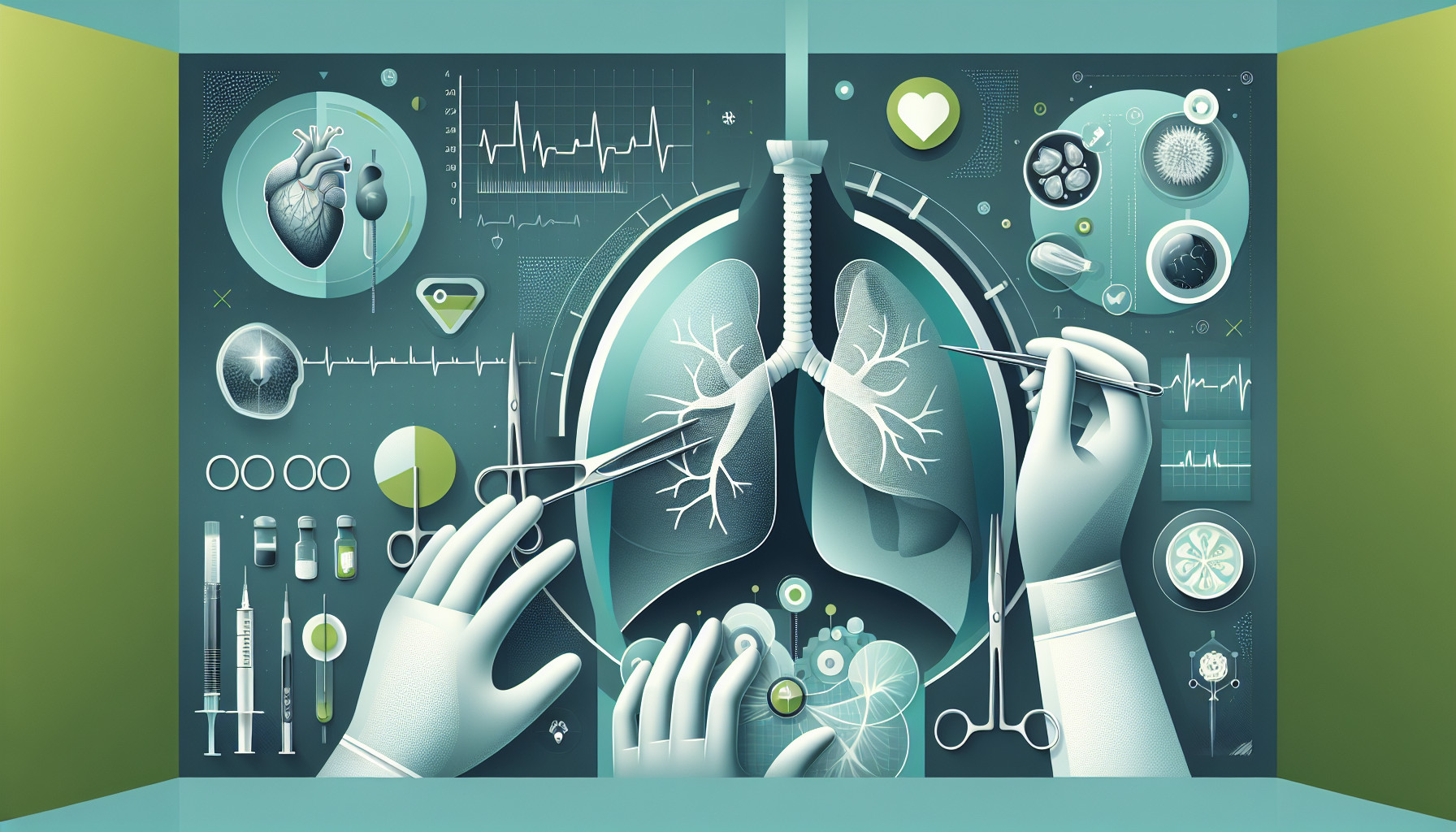Our Summary
This research paper discusses the main reasons why lung transplants may not work as expected. One of these primary reasons is due to alloimmune reactions. These reactions occur when the body’s immune system identifies the new lung as foreign and starts attacking it. This can cause both immediate and long-term damage to the transplanted lung, and is a major cause of lung transplant failure.
Just like with other organ transplants, lung transplants can also suffer from acute antibody-mediated rejection. This is when the body produces antibodies that specifically target the new lung, causing it to fail.
To correctly diagnose these issues, researchers need to use a variety of methods. These include looking at the lung under a microscope, checking the patient’s symptoms and medical history, using imaging techniques like x-rays or CT scans, conducting blood tests, and checking for any infections. All these tests must be considered together to make an accurate diagnosis.
FAQs
- What are the major causes for impaired lung allograft function following a transplant?
- What is the role of acute cellular rejection in lung transplant pathology?
- How can sensitivity and specificity in the diagnosis of alloimmune reactions in the lung be achieved?
Doctor’s Tip
One helpful tip a doctor might tell a patient about lung transplant is to closely follow the prescribed medication regimen to prevent rejection of the transplanted lung. It is important to take immunosuppressant medications as directed to reduce the risk of acute cellular rejection and antibody-mediated rejection, which can lead to complications and impaired lung function. Additionally, regular follow-up appointments with the transplant team and open communication about any symptoms or concerns are crucial for monitoring the health of the transplanted lung and ensuring optimal outcomes.
Suitable For
Patients with end-stage lung disease, such as chronic obstructive pulmonary disease (COPD), cystic fibrosis, idiopathic pulmonary fibrosis, and pulmonary hypertension, are typically recommended for lung transplant. These patients have exhausted all other treatment options and have severe respiratory symptoms that significantly impact their quality of life. Additionally, patients with severe acute respiratory distress syndrome (ARDS) or other acute lung injuries may also be considered for lung transplant if other treatment options have been unsuccessful.
Timeline
- Before lung transplant:
- Patient undergoes extensive evaluation to determine eligibility for transplant, including medical history, physical exams, blood tests, imaging studies, and lung function tests.
- Patient is placed on a waiting list for a donor lung based on their medical urgency and compatibility with the donor lung.
- Patient may experience worsening symptoms of lung disease, such as shortness of breath, coughing, and fatigue, while awaiting transplant.
- Patient may receive supportive treatments, such as supplemental oxygen or medications, to manage their symptoms.
- After lung transplant:
- Patient undergoes surgery to receive the donor lung, which typically involves a lengthy recovery period in the hospital.
- Patient is closely monitored for signs of complications, such as infections or rejection of the donor lung.
- Patient undergoes frequent follow-up appointments with their transplant team to monitor their lung function, adjust medications, and address any concerns.
- Patient may experience improvements in their symptoms and quality of life following transplant, but may also face challenges such as medication side effects or complications related to the transplant.
- Patient must adhere to a strict medication regimen to prevent rejection of the donor lung and maintain overall health.
- Patient may need to make lifestyle changes, such as quitting smoking or avoiding certain activities that could put their new lung at risk.
- Patient continues to be monitored long-term for signs of chronic lung allograft dysfunction, which can develop years after transplant and impact long-term outcomes.
What to Ask Your Doctor
What are the potential risks and complications associated with a lung transplant?
What criteria do I need to meet in order to be considered a candidate for a lung transplant?
How long is the waiting time for a donor lung?
What is the success rate of lung transplants at this facility?
How will my life change post-transplant in terms of medication, lifestyle changes, and follow-up care?
How will my immune system be affected by the transplant and what precautions do I need to take to prevent rejection?
How long is the recovery process and what support resources are available post-transplant?
What are the signs and symptoms of rejection that I should watch out for?
How frequently will I need to come in for follow-up appointments and monitoring after the transplant?
Are there any clinical trials or new treatments available for lung transplant patients that I should be aware of?
Reference
Authors: Werlein C, Seidel A, Warnecke G, Gottlieb J, Laenger F, Jonigk D. Journal: Surg Pathol Clin. 2020 Mar;13(1):119-140. doi: 10.1016/j.path.2019.11.003. PMID: 32005428
